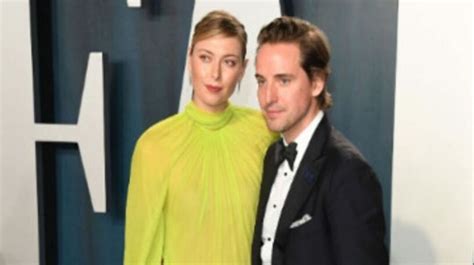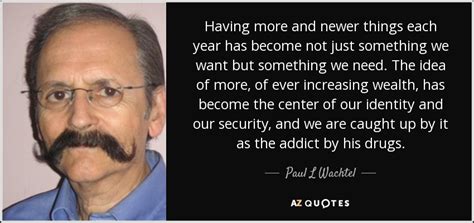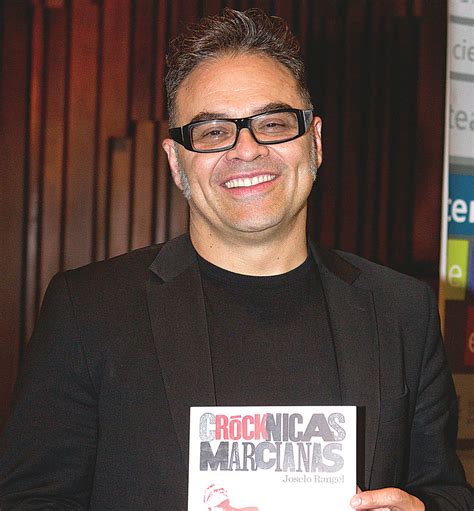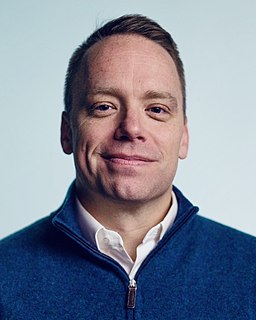A Quote by Alexander Gilkes
Our generation has become somewhat stripped of identity by the homogenizing effect of technology. So, more than ever, people want to project their own individuality.
Related Quotes
We no longer just take religious identity from our parents, so what's going on? Why are people going to this series, why are people reading so many books about religion? It's because they want answers. The answers are no longer just passed down from generation to generation. It's harder for people. In effect, you have to roll up your sleeve and ask the questions. But if you do it, if you forge your own identity, it can be much more personal and much more meaningful to you.
Ever since I was a child, I always had insecurity or suspicions about my own personal identity. That's why I started going to a lot of movie theaters, because I felt more comfortable there than at school. Now, the search for a personal identity is becoming a common topic for young Japanese people, and it's a big theme in their own lives. But it's been a theme in my life, as well, ever since I was young.
If you embrace a project that will require time and patience, then you need something to work on. So the first step of the project is to create an identity. If you don't have an identity, then today you want this player and tomorrow another one. If you have an idea and a shape, then this is how you develop an identity.
I've realized that a lot of people come to me because of what's called identity. In the sense of "he's like me" - more like identification. Identity is one of those nonsense words: it's been used so much it doesn't mean anything. As individuals, we don't want to stay the same; identity means sameness, and we don't want to be the same, we want to keep changing, we want to grow, we want to become something else. We want to evolve. So when people come to me, it's about resonance - it goes back to that word.
In a world in which we are exposed to more information, more options, more philosophies, more perspectives than ever before, in which we must choose the values by which we will live (rather than unquestioningly follow some tradition for no better reason than that our own parents did), we need to be willing to stand on our own judgment and trust our own intelligence-to look at the world through our own eyes-to chart our course and think through how to achieve the future we want, to commit ourselves to continuous questioning and learning-to be, in a word, self-responsible.
Anyone who has studied the history of technology knows that technological change is always a Faustian bargain: Technology giveth and technology taketh away, and not always in equal measure. A new technology sometimes creates more than it destroys. Sometimes, it destroys more than it creates. But it is never one-sided. The invention of the printing press is an excellent example. Printing fostered the modern idea of individuality but it destroyed the medieval sense of community and social integration.
We don't think of ourselves in Cafe Tacvba as representatives. When we go and make new material, we feel that our creations are more authentic if we think of ourselves. We don't say, "Let's be the representatives and show the moment that our society is in." But when it comes to performing and we visit other countries, like New York, many people approach us, people who are outside of their own country, and we become a referent. Our shows become this sort of ritual, and our performances become that moment of identity.
I think what you have to realise is that our generation is the first generation since its sexual awakening has come into the world and realised that sex can mean, ultimately, death. That has had a very serious effect on social morals and on the way people deal with each other. As we approach the millennium, people are getting more and more confused and contact is getting more and more sanitised, so there's a lot more mental games being played.
Every project is different. Adapting 'Robopocalypse' would be totally different than adapting, say, 'Hunger Games.' Each project has its own life and its own identity. You get into trouble when you think there's one single way to approach everything. Each project, there's a different way to attack it.
It happens every millennium. Now more than ever, man threatens to destroy himself with his own technology, and all the ideas contained within Big Brother exist within Little Brother. We're all watching ourselves. We are our own oppressors. This is a time when an idea like God is needed more than ever. For me, I've found that God exists within yourself and what you create. The only thing we've got to look forward to is saving ourselves



































